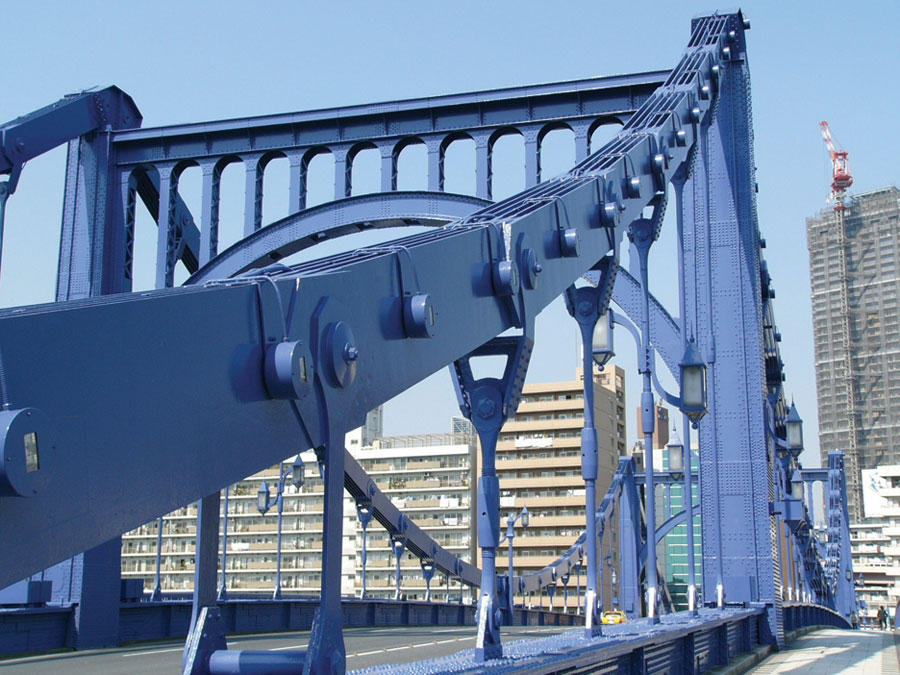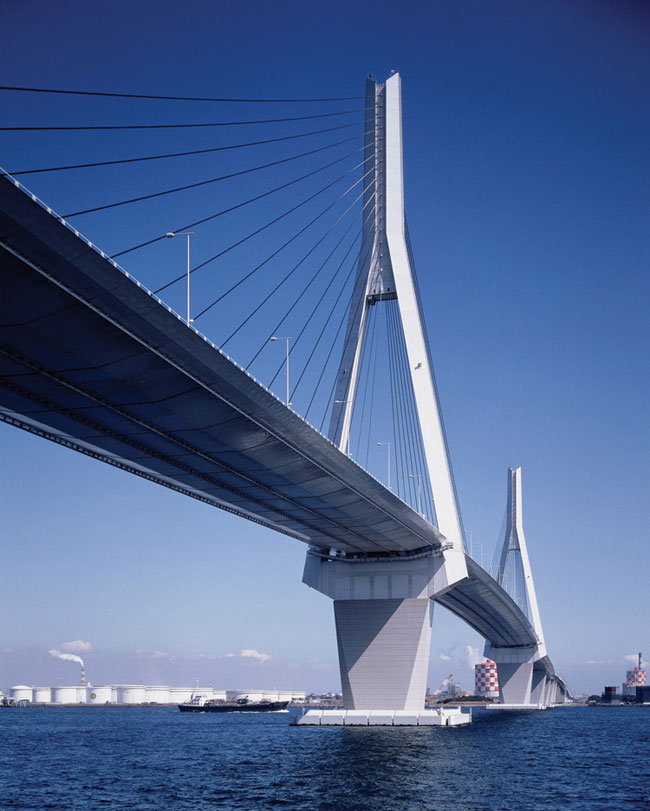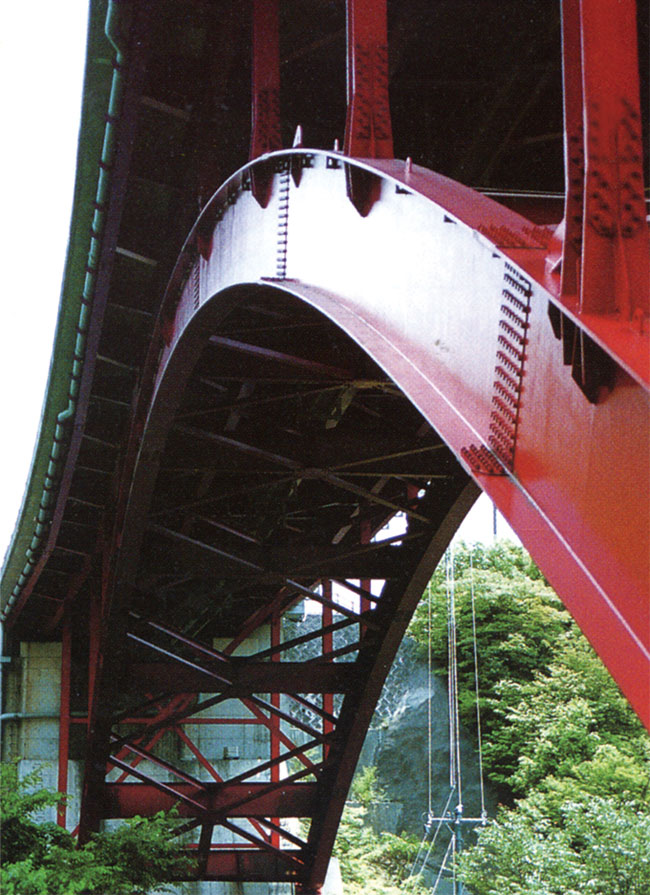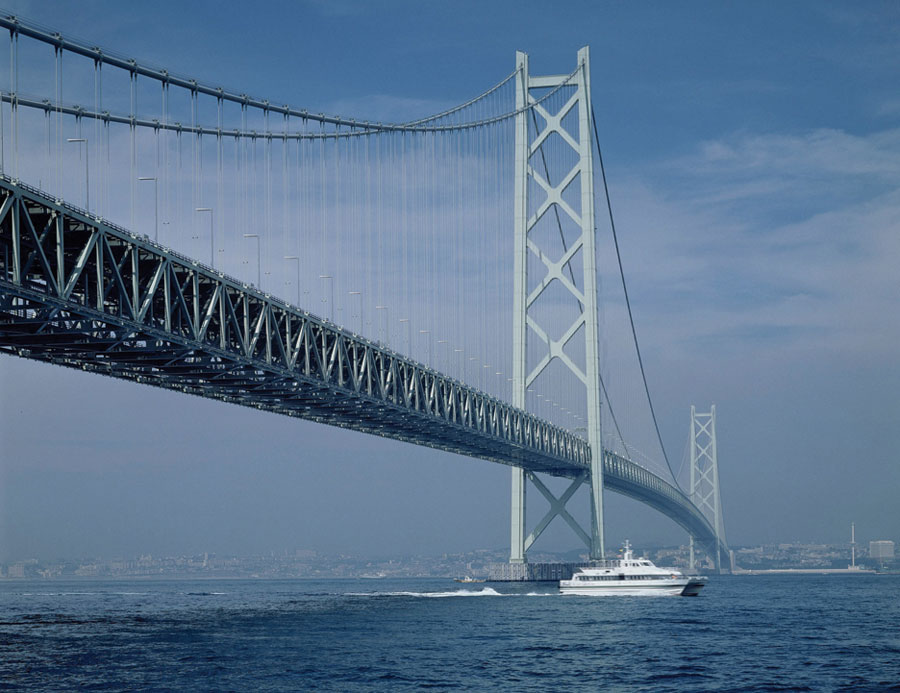| Featured Projects: | Akashi Kaikyo Bridge, Kiyosu Bridge, Tokiwa Bridge, Tsurumi Tsubasa Bridge |
|---|---|
| Locations: | Various |
| Finish: | Solid |
| Coating: | LUMIFLON FEVE resin |
Advanced coating technologies have been initiated to find low-maintenance solutions for bridges that eliminate the need to repaint.
Bridges are especially vulnerable to severe weathering and therefore environmental degradation. Dependent on geographic location, they are exposed to UV radiation, substantial temperature fluctuations, wind, and saltwater.
While traditionally the use of FEVE resins was for aesthetic purposes, taking advantage of its high gloss retention, its use in the industrial maintenance market is for corrosion protection.
Unlike other fluoropolymer resins, fluoroethylene vinyl ether (FEVE) resins have exceptional corrosion resistance. In particular, LUMIFLON resins have low permeability to oxygen, water, and chloride, making them the ideal topcoat for both inland and oceanic bridge construction.
For years, LUMIFLON resins have proven more efficient than common coatings such as alkyds, chlorinated rubber, acrylics, urethanes, and even siloxanes on steel and concrete. Their ability to lower lifecycle costs by preventing environmental degradation has allowed them to become the international choice for bridge coatings, with over 150,000 applications around the world.
FEVE coatings have dominated the bridge market in Japan for over 25 years. The use of these topcoats became mandatory throughout Japan after research conducted (took out “was”) by the Japanese Ministry of Land, Infrastructure, and Transportation proved their effectiveness in the sustainability of bridges for up to 60 years.
With the emergence and demand for greener construction methods, new environmentally friendly grades of the fluoropolymer resin have been developed that can be used to formulate low-VOC and HAPS-free coatings.




[…] photo credit […]